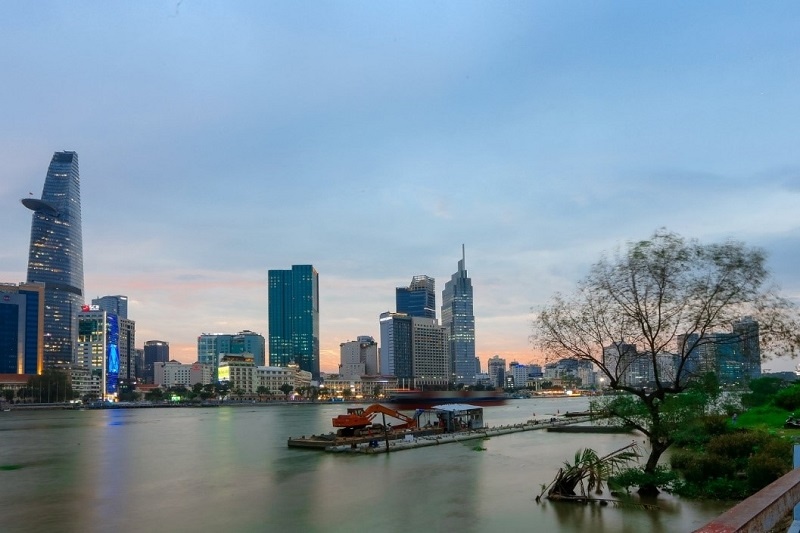Emphasis put on Vietnam’s national branding and global business
According to Brand Finance, Vietnam ranked 33rd globally in 2021 with a national brand value touching $388 billion, up 21.6 per cent on-year. The country was also among the top 10 fastest-growing national brands in this ranking.
RMIT University’s senior programme manager for International Business Dr Erhan Atay believes such outcomes have been achieved “with the concerted efforts of the government's strategic programmes and support, together with firm-level attempts to increase their presence and value in both domestic and global markets.”
However, he remarked that while the export values of key industries such as processed food and garment industries have increased significantly, the reality is that the number of brands originating from Vietnam that are globally known “are extremely limited”.
Fellow RMIT School of Business & Management academic Dr Dang Thao Quyen elaborated that Vietnam’s export revenue mainly comes from selling raw materials or attending to simple production or assembling processes of global value chains.
“These business activities add little value and are unsustainable for firms and the economy as a whole. Eventually, global consumers are unaware of Vietnamese brands, while domestic consumers prefer international products over local ones in many instances,” she said.
The RMIT academics said that in order to compete in global business, it's time for both the government and business community to take a comprehensive and concrete approach towards strengthening the nation's brand as well as the brands of individual firms.
To clarify what strategies should be adopted in this approach, experts at RMIT’s recent International Business Week event themed “National branding in the global business context: The way forward for Vietnam” explored the four following considerations.
 |
| The RMIT International Business Week welcomed speakers from the Vietnam Trade Promotion Agency (Vietrade), Secoin Corporation, Brand Finance, RMIT University, and the University of Southern California |
Domestic favour is necessary before going global
If a country or a brand wants to win the global market, it should first gain the favour of its domestic citizens and market. Companies should not underestimate the significance of the domestic market. If they cannot satisfy the customers in their home turf where they are supposed to have the best standing, there is no guarantee that they will have any chance of competing in markets with different political, socio-cultural, and economic environments.
“If a country and its products are not attractive to its citizens, then the country will have a more difficult time attracting foreign audiences and maintaining a favourable reputation in the international arena for the long term,” said Dr Lindsey M. Bier, assistant professor at the University of Southern California from the US.
A thousand-mile journey starts with the first minor steps
Penetrating international markets can be a bumpy journey which first requires minor steps, patience, and effort that firms should get well prepared for. Firms might first accept to be producers for other countries' brands before being able to sell products with their original brands. However, they should not lose the Vietnamese origin in any step.
“We need to be realistic. Everybody wants to go international and be a big player there, but we must know who we are,” said Vo Thi Lien Huong, vice general director of Secoin Corporation. “We must know the position of our nation. Don't think immediately about big things. Let's go step by step.”
 |
Preparation of foreign market entry knowledge
The experts pointed out that due to a lack of knowledge about foreign markets, many Vietnamese firms have learned expensive lessons and lost their brands or trademarks to foreign enterprises. Firms therefore should obtain adequate knowledge to penetrate, grow, and protect their brands globally.
"Many businesses that lack experience in exporting products to foreign markets have had their brands acquired. Foreign enterprises often propose to change the brand name to a foreign brand. Vietnamese businesses accept and lose their brand names when going to foreign markets,” said Lai Tien Manh, Brand Finance’s country representative in Vietnam.
Differentiation and integration of sustainability
Meanwhile, RMIT Vietnam’s Economics lecturer Dr Daniel Borer emphasised, "We need to think about where we have an edge compared to others. We must be a green brand.”
He believes differentiation is the key to standing out and excelling in international markets. Furthermore, the country and firms should stay updated with the global trends regarding sustainability, and integrate the UN Sustainable Development Goals into their strategies for sustainable growth.
What the stars mean:
★ Poor ★ ★ Promising ★★★ Good ★★★★ Very good ★★★★★ Exceptional
Related Contents
Latest News
More News
- Pegasus Tech Ventures steps up Vietnam focus (February 05, 2026 | 17:25)
- The generics industry: unlocking new growth drivers (February 04, 2026 | 17:39)
- Vietnam ready to increase purchases of US goods (February 04, 2026 | 15:55)
- Steel industry faces challenges in 2026 (February 03, 2026 | 17:20)
- State corporations poised to drive 2026 growth (February 03, 2026 | 13:58)
- Why high-tech talent will define Vietnam’s growth (February 02, 2026 | 10:47)
- FMCG resilience amid varying storms (February 02, 2026 | 10:00)
- Customs reforms strengthen business confidence, support trade growth (February 01, 2026 | 08:20)
- Vietnam and US to launch sixth trade negotiation round (January 30, 2026 | 15:19)
- Digital publishing emerges as key growth driver in Vietnam (January 30, 2026 | 10:59)

 Tag:
Tag:



















 Mobile Version
Mobile Version